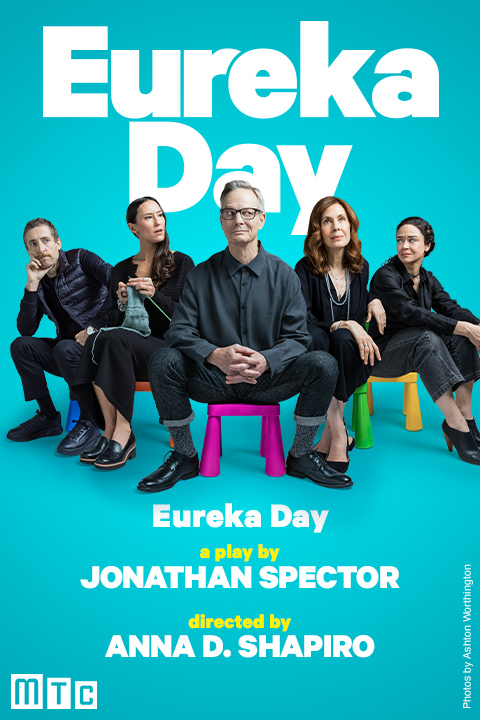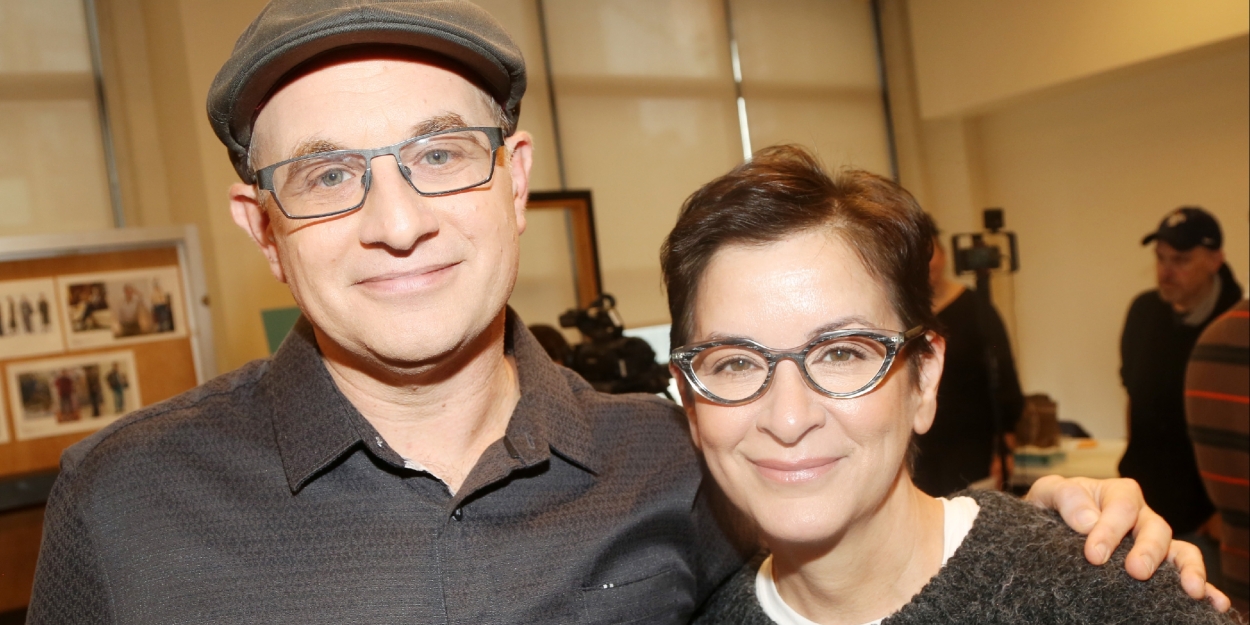Bringing Eureka Day to Broadway feels especially meaningful for playwright Jonathan Spector, who first envisioned this story years before a global pandemic reshaped our world. Set in a progressive private school in Berkeley, California, the play explores how a close-knit community grapples with an outbreak of mumps, sparking a heated debate on vaccination, personal beliefs, and collective responsibility.
The production, directed by Anna D. Shapiro, stars Amber Gray, Jessica Hecht, Bill Irwin, Thomas Middleditch, and Chelsea Yakura-Kurtz. The play begins previews November 25 and opens December 16 at the Samuel J. Friedman Theatre.
BroadwayWorld spoke with Spector about what audiences can expect from the play, the evolution of audience perspectives on the play’s themes, the inspiration behind writing Eureka Day and more.
Eureka Day had a successful run in London. How does it feel to be bringing this play to New York audiences?
It’s thrilling to get a chance to do the play on Broadway, especially at this moment. The play was written before Covid, and had a couple of productions before Covid, and I think the audience’s relationship to it is very different in some ways now than it was then. I think where we are at this moment in time is actually in some ways a happy medium. Because what I found was that in the productions before Covid, most people didn’t have deep and intense feelings around vaccines unless they were in that moment of having their children vaccinated. It was all very distant from their lives, and so people were able to engage with the metaphor of it in a way, and understand the play in that way.
We’ve had a couple of productions since Covid, especially the very early ones when we were just coming back to theatre. I think it was impossible for people to see the play as about anything but Covid. I think now, it’s not that Covid is over, but we have a little more distance with it so that we can both access those intense feelings, but not be so overwhelmed by them that that’s the only thing we can see in the play.
Can you describe for future audiences what they can expect from this show?
Eureka Day is a play about a small, progressive private school in Berkeley, California. It’s set in the 2018-2019 school year, and it’s a school where it’s extremely liberal in its values, and as a result, the board of directors makes all their decisions by consensus, and this is how it’s always operated. And then there is an outbreak of mumps, and they struggle to find consensus about how to deal with this issue. And although this all sounds serious, there is a lot of comedy in it as well. It’s hopefully a play that has enough humor that allows us to engage with some weightier issues in a way that is still enjoyable, and that we’re open to accessing.
When did you write this play and what inspired you to write it?
I started working on it in the summer/fall of 2016, it was a commission for Aurora Theatre in Berkeley. I remember this differently than the Artistic Director, he recalls that the one request they’d had was that I write a play set in Berkeley, and I thought I came up with that, but I trust him! So, I was trying to think of something that would feel really Berkeley, and at the time, vaccines were in the news in California because there had been- I think a year or two prior to that- an outbreak of measles at Disneyland. And that led to a lot of conversation about changing the laws around childhood vaccinations. California at that time had one of the loosest vaccination requirements in the country. It was what’s called a personal belief exemption, where you could say, “I don’t believe in vaccines.” And then you didn’t have to vaccinate your kids to go to school. So, there was a conversation and legislature about changing that, and it was very contentious.
So I was aware of that ambiently in the background, and then what happened, at that time I did not have school-aged children, my daughter was recently born, but I had a number of conversations with people I knew, and thought they were really smart, and thoughtful, and who had similar politics to me, so I thought we basically had the same worldview, and then would learn that they didn’t vaccinate their kids. It was such a strange moment of grappling with how you can exist in the same reality as somebody in every way except for this one thing where you seem to exist in very different realities.
So, that was fascinating to me. And this is something that’s really shifted as a result of the way Covid played out and the way it was politicized, and Trump, and all of it. But prior to Covid, vaccines and childhood vaccinations were maybe the only deeply contentious issue that was not predictive of your other political beliefs. So, just knowing that somebody doesn’t vaccinate their kids, at least circa 2017, did not necessarily tell you if they were liberal or conservative. There were people who were deeply skeptical of vaccines on the right and even more prominently at the time on the left. Some parts of the country with the highest rates of unvaccinated children were some of the most liberal areas. And so, that made it something interesting for me as a play to explore. Because you can have a group of people that basically agree about everything except for this one thing, versus abortion, and gun control, and climate change, where you pretty much know that, for the most part, people’s views on that are predictive of what all their other views are too.
So all of those things made it kind of an interesting area to explore, and then the setting, it being in a school felt like a good place to explore that because of the nature of the kind of collective decision making that has to happen in some of those settings.
How does it feel to be making your Broadway debut with the show?
It’s thrilling. Surprising in a lot of ways, it’s been a long journey to get there, so I’ve been kind of sitting with it as a possibility for a very long time, but it still feels completely surreal.
Do you have any final thoughts you’d like to share?
I think there is an interesting way in which the place the play sits, and the kind of questions it's wrestling with, are in some ways even more relevant to the questions we’re wrestling with right now as a society in this kind of pseudo post-Covid moment. The play is wrestling with that classic and yet impossible question of balancing the needs and desire of the individual against the needs and desires of the community. And I think where we are now with Covid, where for most people, if you’re vaccinated, or even if you’re not and you’ve had Covid, the relative risk of Covid is pretty low, and so it makes sense to drop a lot of these precautions. And yet, there are some people in our population are not able to fully participate in the world in the way they could before Covid.
And so, the question is how much do we sacrifice things for the majority to accommodate the minority who need those accommodations? I think that is something that the theatre world specifically, and our society at large is really struggling with, and people are coming up with different kinds of answers to that.



